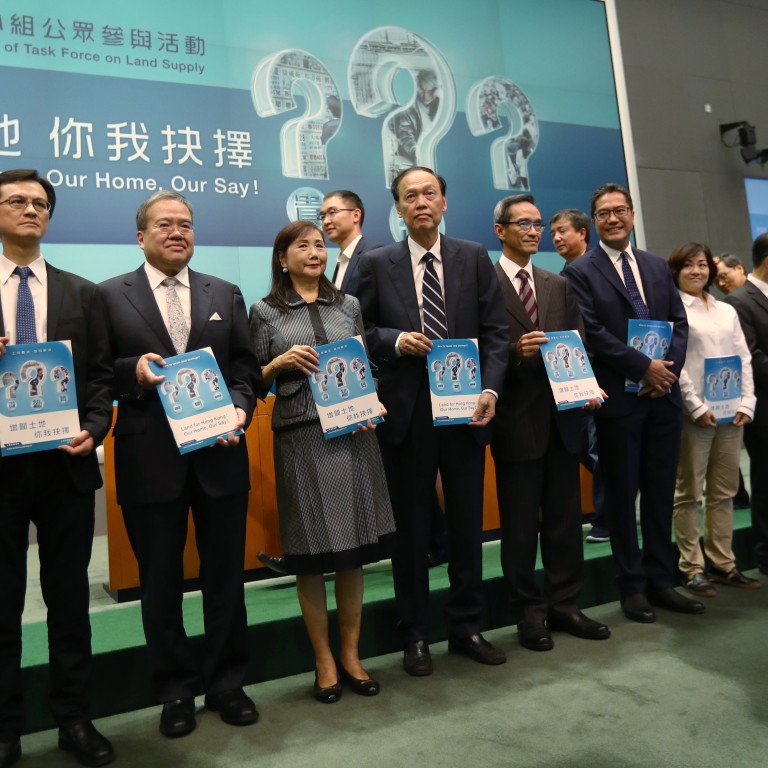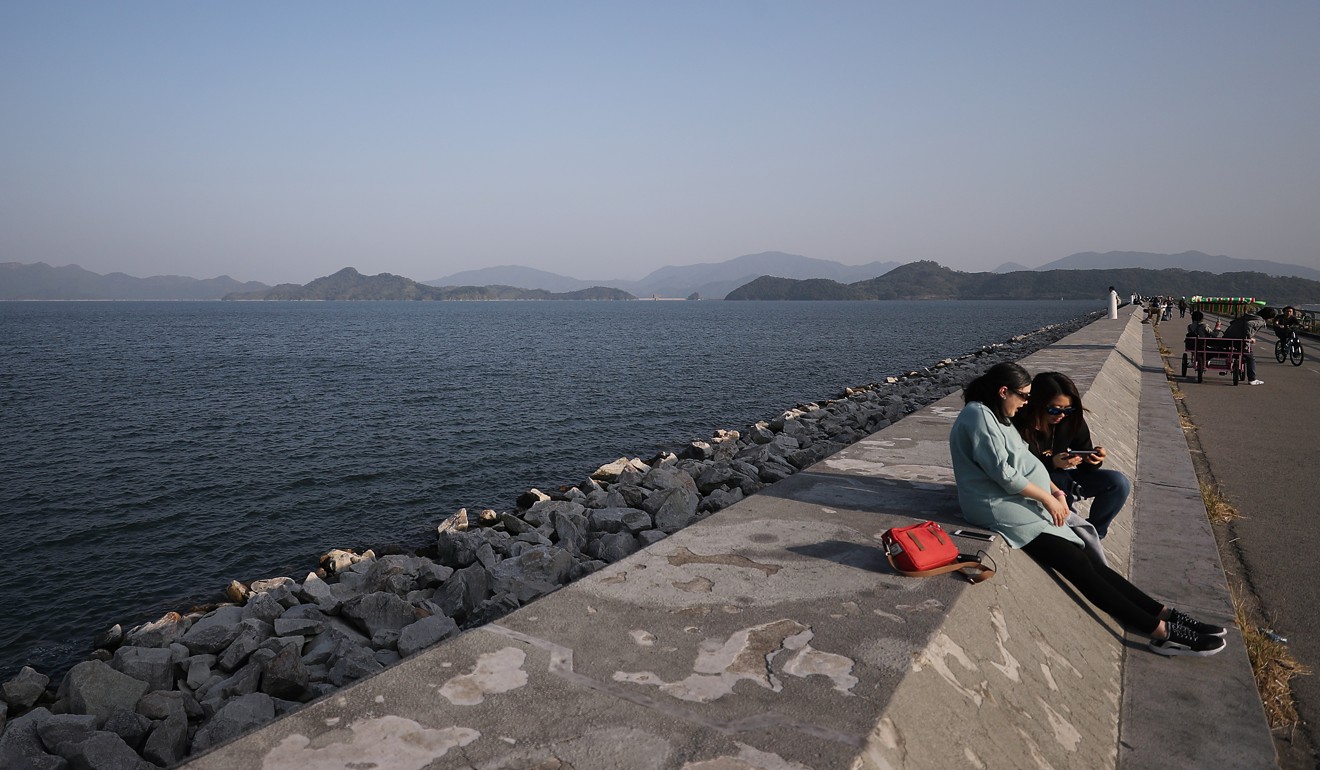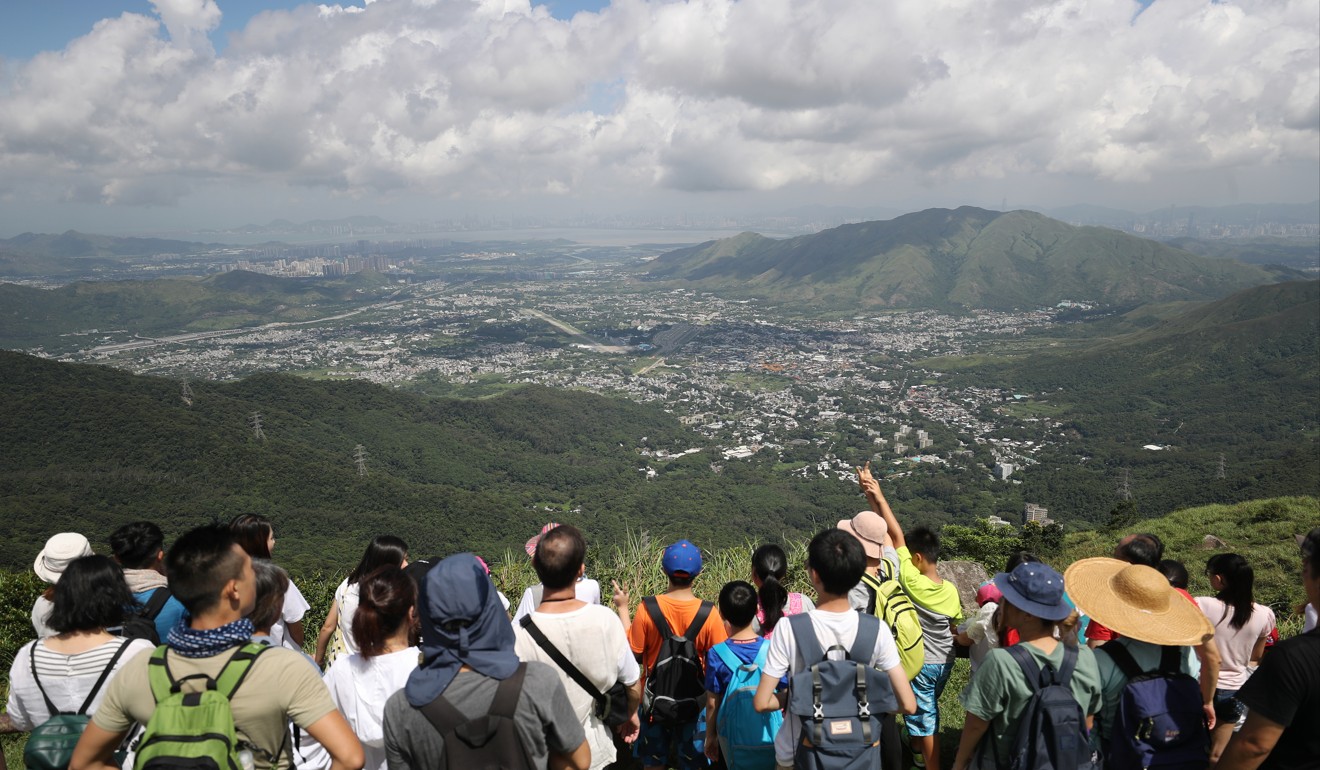
Task Force on Land Supply says no to reclaiming part of Hong Kong’s second largest reservoir
- Proposal to reclaim land at Plover Cove Reservoir was floated by one member of task force but was deeply unpopular with the public
- The force said the option would cause ‘much potential impact and risk on various fronts’ such as water supply, environmental protection and high cost
An ambitious proposal to reclaim part of Hong Kong’s second largest reservoir has been rejected outright by a government-appointed task force on land supply.
In addition to eight recommended land supply options, including a controversial proposal to build massive artificial islands to the east of Lantau Island, the task force also put nine options at lower priority and rejected the option of reclaiming part of Plover Cove Reservoir.
In its report, the Plover Cove option, floated by one real estate professor who sat on the task force, received the lowest public support – 16 per cent and 23 per cent respectively in a questionnaire survey and a telephone survey.
The force said the option would cause “much potential impact and risk on various fronts” such as water supply, environmental protection and high cost.
Another controversial option, developing two peripheries of protected country parks, which was floated by the last administration, received 28 per cent and 53 per cent public support in questionnaire and phone surveys.

The force said the option involved many hurdles such as environmental impact and legal challenges, and suggested the government conduct scientific analyses and consider a compensation mechanism before any development proposals.
Land supply task force urges reclamation to ‘break debate stalemate’
Developing 3,400 hectares of indigenous villages primarily for villagers to build small houses garnered 45 per cent and 54 per cent public support in questionnaire and phone surveys. But the force said it found the option difficult because it involved rural environment planning, changes to indigenous villagers’ rights to build small houses – a matter under judicial review – and impact on historical heritage.
Other low-priority options include consolidation of recreational facilities, topside development on transport infrastructure, developing public utility sites, developing the Kwai Tsing Container Terminals, and enhancing current land supply measures such as using vacant government sites.
Why Hong Kong reclamation plan could worsen marine ‘dead zone’

Throughout the best part of a year, the government-appointed task force’s efforts to seek public opinion on how to source land for a space-starved Hong Kong have been impeded by accusations of conflict of interest.
As the Task Force on Land Supply’s work concluded on Monday with a contentious final report in which it made eight land supply recommendations, critics pointed to the force’s previous controversies.
Land supply task force gives its backing to Lantau reclamation plan
Several members were found to be owners of land affected by the land supply consultation, such as farmland or polluted agricultural land known as brownfields.
Almost half of the 22 non-official members worked in development-dependent sectors such as property developing, engineering, surveying and architecture design.

The force also publicly endorsed government views before the five-month consultation started in April, supporting large-scale reclamation and agreeing to drop the plan to examine military land.
The task force was set up to be biased
Some members even openly advocated for reclamation during the consultation.
“The task force was set up to be biased, given the background of some of its members,” said Chan Kim-ching, founder of land concern group Liber Research Community. “They should not claim that their report represents public opinion.”
Despite the accusations, the task force has argued that what it conducted was “the most extensive consultation” in recent years and it has reflected public opinion truthfully.

